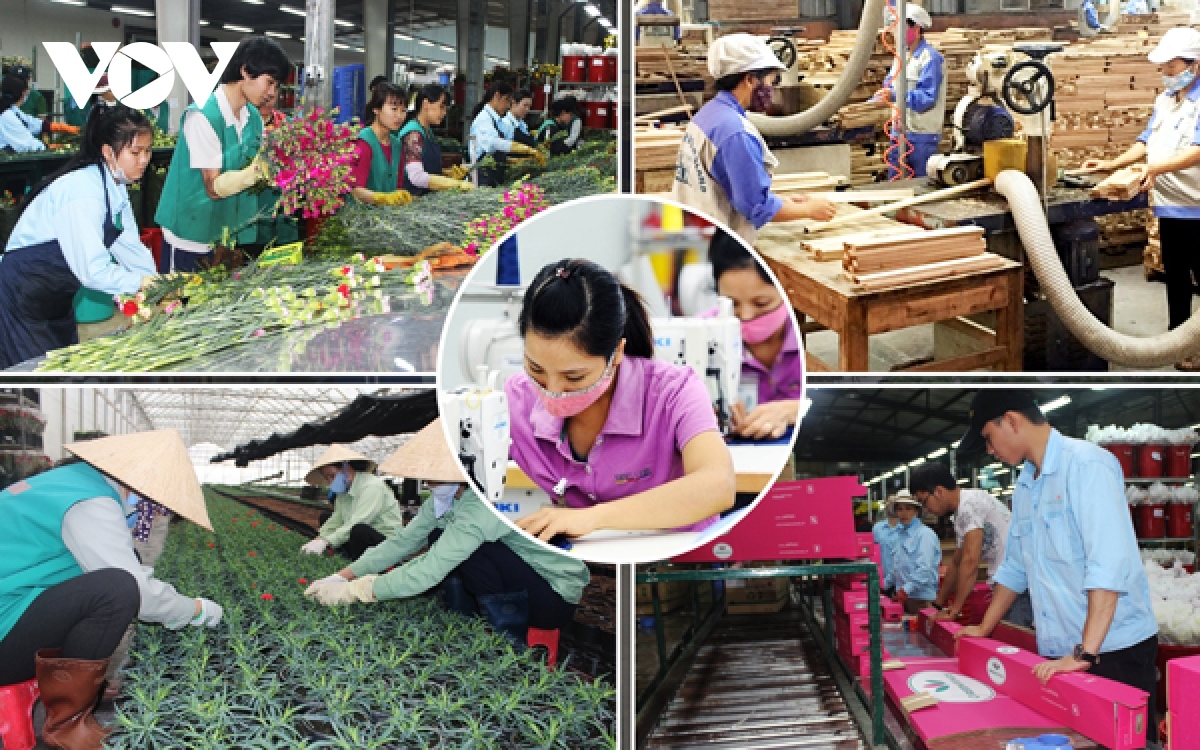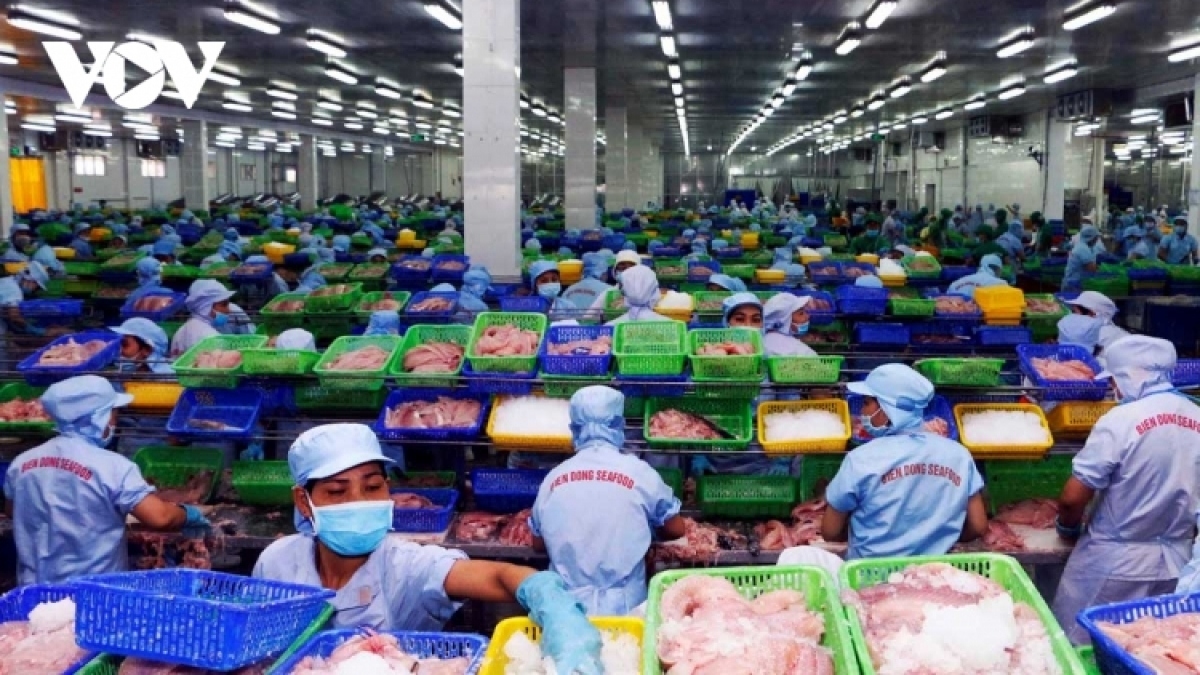Slanderous allegations about Vietnamese market economy come under fire
Society – Economy - Ngày đăng : 12:20, 06/08/2024

The allegations come after the United States announced that it has yet to recognise the country as a market economy, though it acknowledged positive changes in the economy.
Slanderous allegations
On their websites and fanpages, reactionary groups and organisations held discussions and forums, drumming up the results of their lobbying activities with the US Government, asking it not to recognise the market status of the Vietnamese economy.
To latch on to the event, the Viet Tan, an outlawed organisation which seeks to sabotage the country from overseas, livestreamed discussions with participants they labeled as experts, lawyers, and doctorates, with the aim of tarnishing the socialist-oriented market economy in the country.
Several reactionary elements in exile also took this opportunity to speak ill of the Vietnamese regime, saying, “There is no market economy mechanism in a dictatorship,” or, “A market economy will be recognised only when pluralism and multi-party system is developed in the country.”
Hostile and reactionary forces deliberately used this occasion as a pretext for sabotaging the Party and State of Vietnam, calling for a change in political institutions in the country. The so-called experts, lawyers and observers all “recommended that Vietnam should change its political regime,” explaining that the market economy is inherently the product of capitalism and it operates according to the laws of capitalism. Such a market economy, they said, could not be reconciled and combined with the goal of building socialism with a socialist orientation.
These forces even interpreted that Vietnam has been quietly shifting towards developing its market economy in a capitalist direction by encouraging private economic development and increasing market regulations over recent years, though it is still using words and concepts of socialism.
Market economy policy line

Indeed, the market economy is an economic model in which buyers and sellers interact with each other according to the laws of supply and demand to ultimately determine prices and quantities of goods and services in the market. It is an economic model which reflects a certain level of development of human civilization.
The Communist Party of Vietnam, at the seventh National Party Congress in 1991, outlined the task of, “Building a multi-sector commodity economy with a socialist orientation that operates according to the market mechanism with State management.” The phrase of “building a socialist-oriented market economy” was first used by the Party at the ninth National Party Congress in 2001.
Those policies marked a fundamental shift in the Party’s thinking and concept of socialism and the path towards building socialism in the country. Since then, the Party’s awareness of the socialist-oriented market economy has increasingly been supplemented and developed in accordance with practical requirements.
At the 13th National Party Congress held in 2021, the Party held the view that, “The socialist-oriented market economy is the general economic model of Vietnam during the transition period to socialism. It is a modern, internationally integrated market economy that operates fully and synchronously according to the rules of the market economy. It is managed by the socialist law-governed State and led by the Communist Party of Vietnam to ensure the socialist orientation for the goal of a rich people, a strong country, and a democratic, fair, and civilized society, appropriate to each stage of the country’s development.”
The achievements of the Doi Moi (Renewal) process launched and carried out by the Party in 1986 are testament to the correctness of the socialist-oriented market economy policy in the country. The market has basically met all of the elements of a modern market economy according to international standards, which is supported by a variety of ownership forms, economic sectors, trade liberalisation, and competition on an equal footing.
The State manages the economy by law, policy, strategy, planning, and the use of the resources, without interfering in the production and business activities of economic entities.
Undeniable fact

After nearly 40 years of implementing an open-door policy, Vietnam is consistently among the economies with high growth rates. Statistics show the economy has achieved an average growth rate of nearly 7% per year, with its GDP last year reaching about US$430 billion, making it the fifth largest economy in ASEAN and the 35th among the 40 largest economies in the world.
Vietnamese products have been exported to 230 countries and territories worldwide, with export earnings increasing over 10% per year on average. 2022 witnessed the country’s foreign trade hit more than US$730 billion, making it among the top 20 economies in terms of international trade.
Furthermore, the country’s business environment has been increasingly improved, creating favourable conditions for local businesses to proactively engage in the global value chain. Some Vietnamese products have initially gained a firm foothold in the international market. The country’s position in all important international rankings has also improved constantly, with its market development index increasing by 12 places to 22nd position recorded in 2020.
The International Monetary Fund (IMF), in its 2020 report, noted that thanks to its Renewal process, Vietnam, which was one of the poorest countries in the mid-1980s, had managed to maintain a high economic growth rate, becoming an emerging market economy in just 25 years. Meanwhile, the World Bank acknowledged that transitioning from a centrally planned economy to a market economy had contributed to the country recording many achievements, making it one of the most dynamic countries in the East Asia - Pacific region.
So far, as many as 73 countries and territories worldwide have recognised Vietnam as a market economy. Among them are large economies such as Canada, Australia, Japan, the UK, and the Republic of Korea. Vietnam has also engaged in 16 bilateral and multilateral free trade agreements (FTAs) with more than 60 trading partners from around the world.
It’s undeniable that the socialist–oriented market economy Vietnam has pursued over the past decades has yielded important gains, helping to improve the material and spiritual life of the masses to boost the country’s image internationally. Judging from that fact, such slanderous allegations by reactionary forces will soon sink into oblivion.
